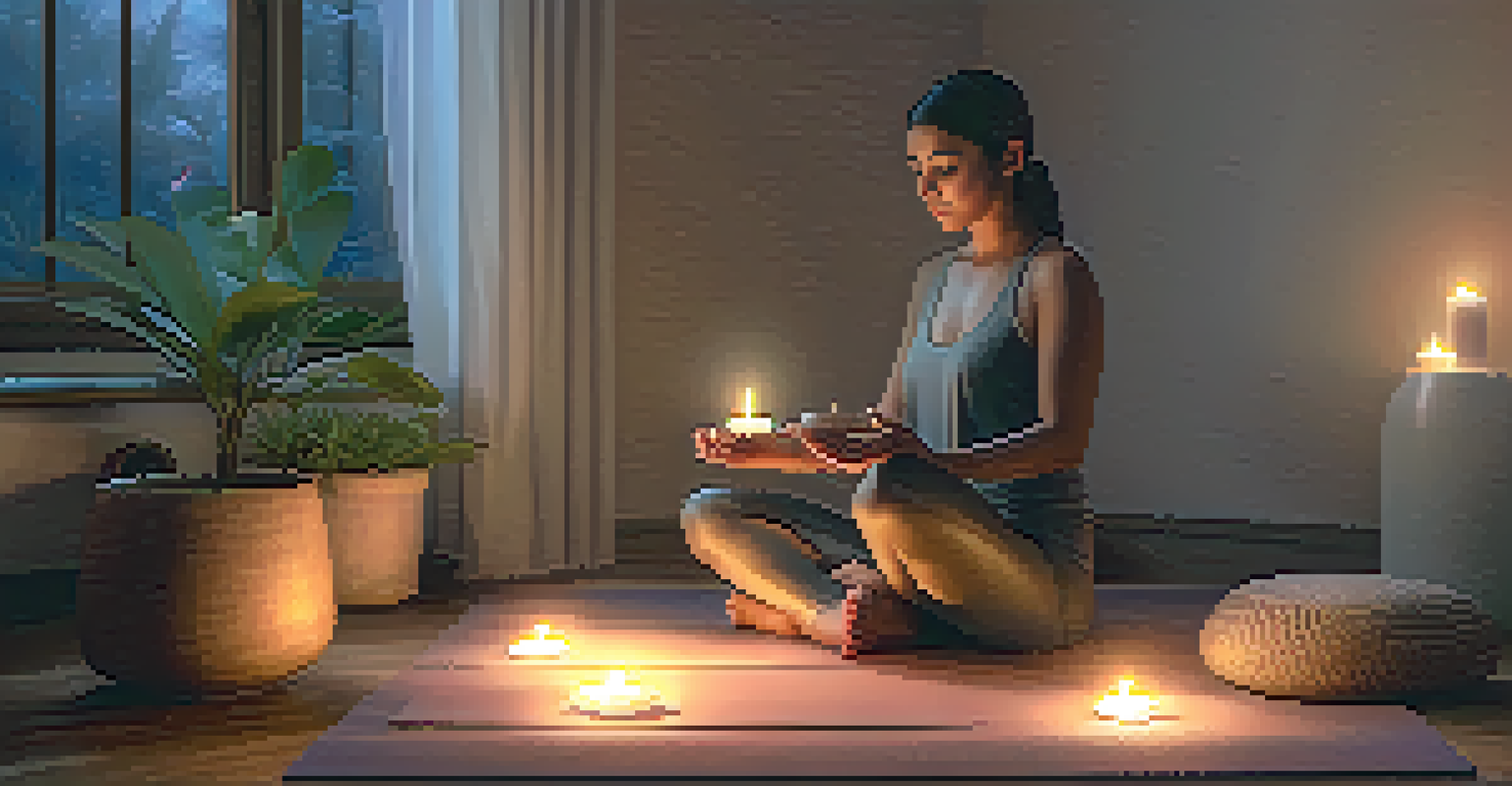How to Create a Sleep Hygiene Checklist for Success

Understanding Sleep Hygiene and Its Importance
Sleep hygiene refers to the habits and practices that promote consistent, uninterrupted sleep. This includes everything from your sleep environment to your bedtime routines. Poor sleep hygiene can lead to a variety of issues, such as insomnia and daytime fatigue, making it essential to establish effective habits.
The best bridge between despair and hope is a good night’s sleep.
By focusing on sleep hygiene, you create a foundation for better health. Quality sleep improves mood, cognitive function, and overall well-being. It’s like watering a plant; without the right care, it struggles to grow and thrive.
Establishing a checklist can help make sleep hygiene practices a regular part of your life. Think of it as a roadmap that guides you toward better sleep and a more energized day.
Assessing Your Current Sleep Habits
Before creating a checklist, it’s important to evaluate your current sleep habits. Take note of when you go to bed, how long it takes you to fall asleep, and the quality of sleep you’re getting. This self-assessment can reveal patterns that may need addressing.

You might find that certain behaviors, like excessive screen time before bed, are affecting your sleep quality. It’s similar to checking the oil in your car; identifying issues upfront ensures smoother performance down the line.
Establish Good Sleep Hygiene
Practicing effective sleep hygiene is crucial for achieving consistent, quality sleep and overall well-being.
Journaling your sleep patterns can also provide insights into what’s working and what isn’t. This baseline information will be invaluable as you develop your sleep hygiene checklist.
Creating a Sleep Environment That Promotes Rest
The environment in which you sleep plays a significant role in your sleep quality. Factors like light, noise, and temperature can either encourage or disrupt restful sleep. Aim to create a dark, quiet, and cool environment to enhance your sleep experience.
Sleep is the golden chain that ties health and our bodies together.
Consider investing in blackout curtains, earplugs, or a white noise machine if you’re easily disturbed. Think of your bedroom as a sanctuary; the more inviting and comfortable it is, the easier it will be for your body to relax.
Additionally, make sure your mattress and pillows support your comfort needs. Just like a good chair helps you work better, a supportive sleep setup allows your body to recharge effectively.
Establishing a Consistent Sleep Schedule
One of the cornerstones of good sleep hygiene is maintaining a consistent sleep schedule. Going to bed and waking up at the same time every day helps regulate your body’s internal clock. This consistency can lead to improved sleep quality over time.
Imagine your sleep schedule as a train schedule; if the trains run on time, passengers arrive at their destinations smoothly. If not, chaos ensues. Similarly, a regular sleep schedule brings predictability and stability to your sleep patterns.
Create a Restful Sleep Environment
A dark, quiet, and cool bedroom environment can significantly enhance your sleep experience.
Even on weekends, try to stick to your routine as closely as possible. This practice helps avoid the dreaded 'social jet lag' that can leave you feeling groggy on Monday mornings.
Incorporating Relaxation Techniques Before Bed
To wind down before sleep, consider incorporating relaxation techniques into your nightly routine. Activities such as reading, meditation, or gentle stretching can signal to your body that it’s time to relax. These practices help transition your mind from the day’s hustle to a more restful state.
Think of these techniques as a warm-up for your mind and body, preparing them for sleep just as an athlete warms up before a game. The more you practice, the more effective these methods become.
Experiment with different techniques to see what works best for you. It’s all about finding that sweet spot that makes falling asleep feel effortless.
Limiting Screen Time in the Evening
In our digital age, screen time often creeps into our evenings. However, the blue light emitted from screens can interfere with your body’s production of melatonin, the hormone that regulates sleep. To improve your sleep hygiene, try to limit screen time at least an hour before bed.
Imagine your brain as a computer; too many tabs open can slow everything down and create confusion. Reducing screen time allows your brain to close those tabs and prepare for a restful night.
Maintain a Consistent Sleep Schedule
Sticking to a regular sleep schedule helps regulate your body's internal clock, leading to better sleep quality.
Consider alternatives like reading a physical book or journaling instead. These activities can provide a comforting end to your day without the disruptive effects of screens.
Monitoring Caffeine and Food Intake Before Bed
What you consume throughout the day can significantly impact your sleep. Caffeine, found in coffee and many sodas, can linger in your system for hours, making it harder to fall asleep. Similarly, heavy meals close to bedtime can lead to discomfort and restless nights.
Imagine your body as a delicate balance scale; the right foods and drinks on one side can tip the scale toward restful sleep. Conversely, heavy or stimulating items can throw everything off balance.

Aim to limit caffeine intake in the afternoon and choose lighter meals in the evening. This mindful approach can enhance your overall sleep quality.
Evaluating and Adjusting Your Sleep Hygiene Checklist
Creating a sleep hygiene checklist is just the beginning; evaluating its effectiveness is equally important. Regularly assess how well your checklist is working and make adjustments as needed. What works for one person might not work for another, so be flexible in your approach.
Think of this process like tuning a musical instrument; it takes time and adjustment to find the perfect pitch. By continually refining your checklist, you can create a personalized routine that truly supports your sleep needs.
Don’t hesitate to seek professional advice if sleep issues persist. A healthcare provider can offer tailored strategies to further enhance your sleep hygiene.